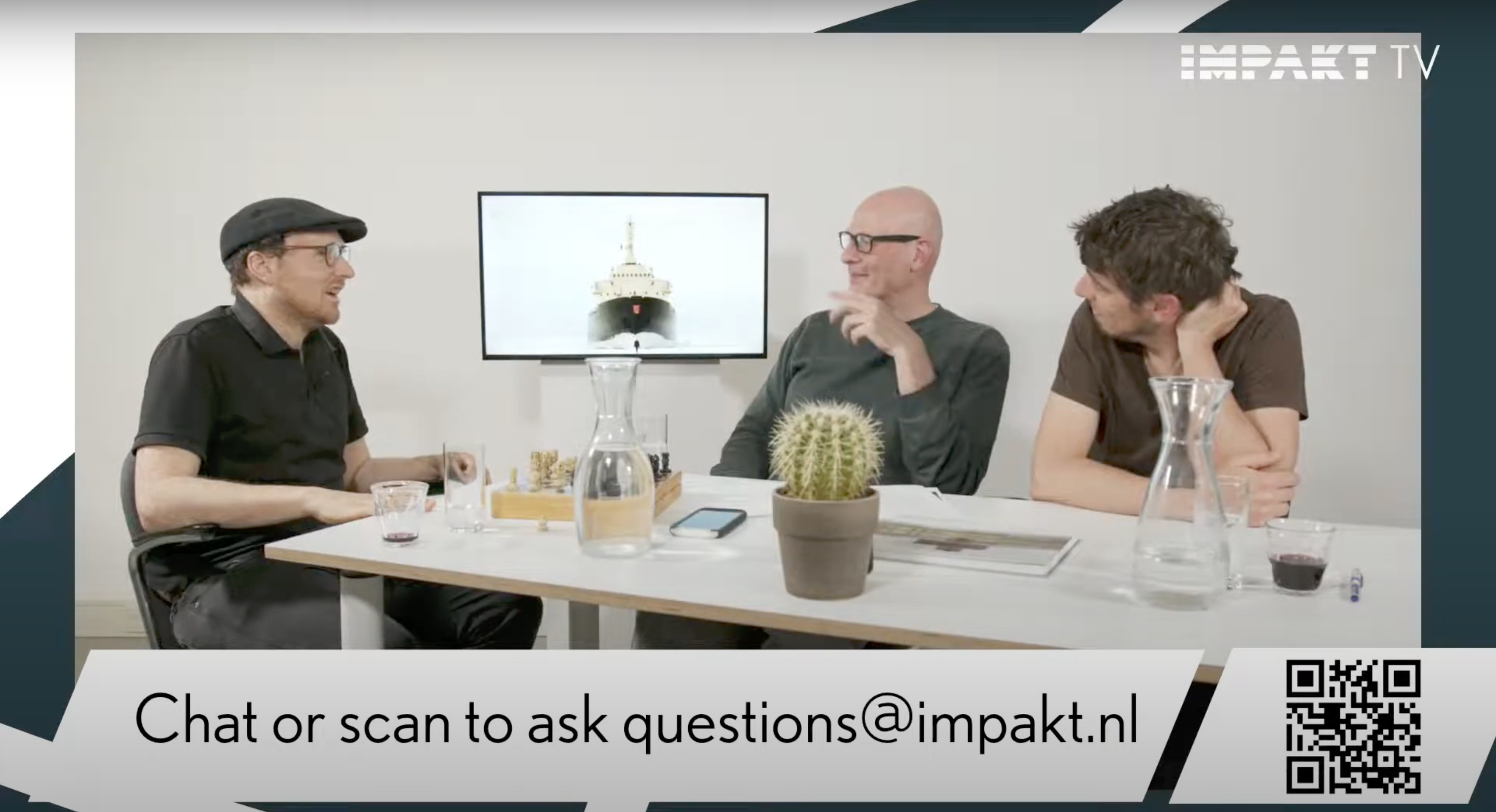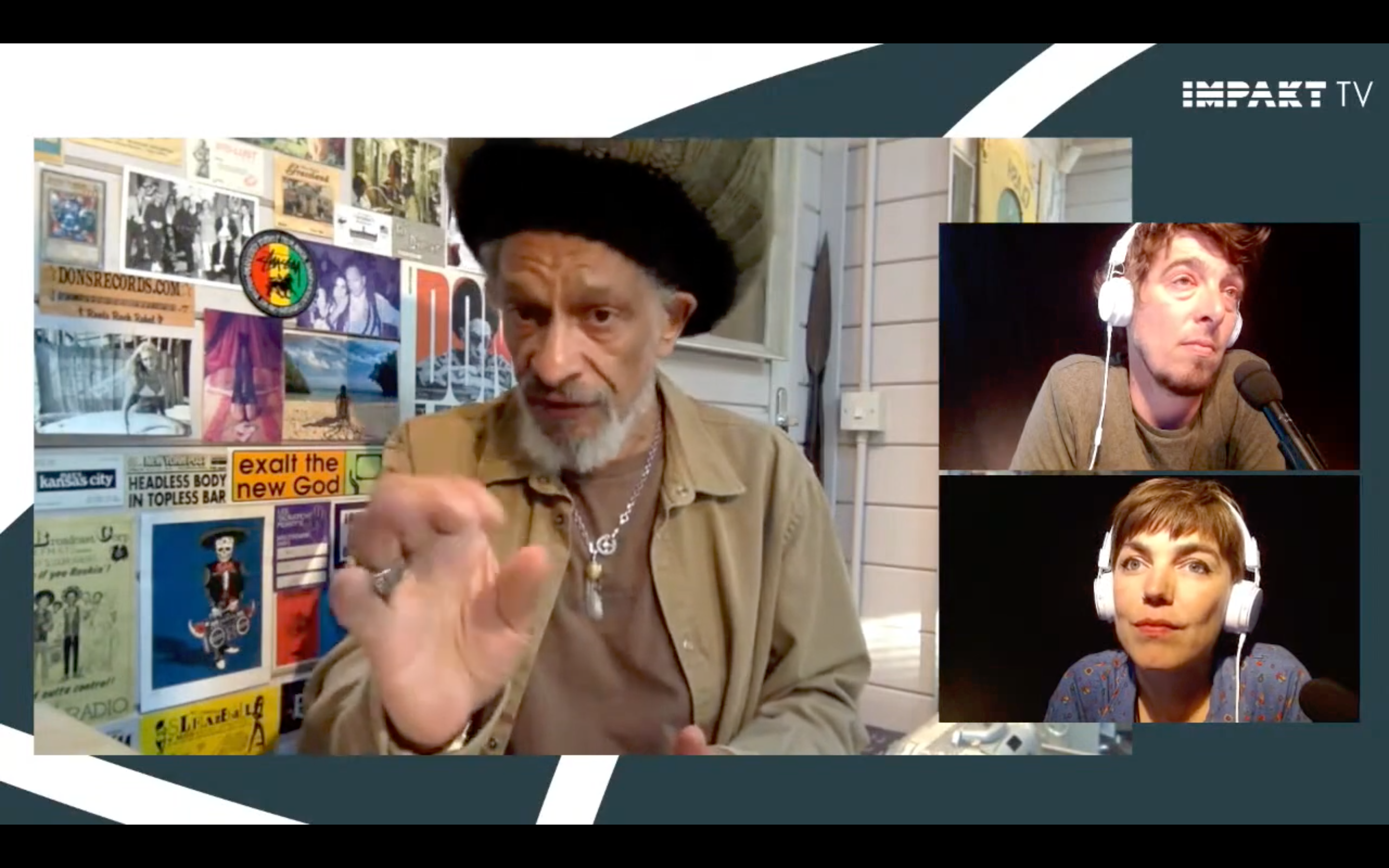IMPAKT TV
IMPAKT TV
IMPAKT TV is a series of monthly online livestreams in which we reflect on the most striking events in art, technology and media of the past weeks. Every first Thursday of the month, together with an artist, journalist, researcher or writer we discuss their work, latest news and must-see exhibitions and events. The video series is streamed live from the IMPAKT office studio through MUX directly into the portal and then archived on Youtube.
The series reflects on IMPAKT’s signature themes such as the complexity of our data driven world, our rights as digital citizens, how power structures are reflected in media and technology, conspiracy theories, meme culture, new approaches to climate change, and much more. With IMPAKT TV we take these discussions out of their theoretical comfort-zone and relate them directly to what we see around us, what we read in the news and scroll through on Instagram.
The chat is active throughout the livestream, available for people to comment, or submit their questions for the guest of the episode. These questions are collected by the hosts of the show and asked to the guest at the final Q&A portion of the show. Everyone– speakers, hosts, and audience– are invited to meet in the rooftop bar at the end of the livestream.
During the festival, IMPAKT TV runs continuously in the livestream in between main stage programs. Between programs, online viewers can see interviews with artists, curators and journalists, and stay in the festival flow– providing the same kind of continuous programming that a guest at the physical location in Utrecht experiences.
1. Keep it simple
The topics covered in IMPAKT TV are wide-ranging. To keep it cohesive, we opted to maintain a consistent structure to the interviews. In the first part of each episode we ask our guests to introduce us to the work they do and to reflect on their own practice. In the second part we discuss a selection of headlines and recent news items. The items are chosen by the IMPAKT TV editorial team, keeping in mind the expertises and interests of the guests. Finally, in the third part of the show, we ask our guests to give us a tip for the weekend: which exhibition, film, book or event we should not miss?
Within this framework there is a lot of ground that can be covered, but the consistency allows viewers to know what to expect from the series as a whole. Furthermore, they always know where to tune in, and where the archival material can be accessed.
4. Create Comfort
Despite the complexity of the topics covered in the series, the editorial team always strives to introduce guests and major theoretical concepts in a way that makes them accessible to the audience.
Unlike many of the events organised by IMPAKT, the livestream is one occasion where the audience has a more spectatorial role. People can tune in with no pressure. Nevertheless, the audience is encouraged to engage: the chat is available to write questions or comments, and we have also made ‘phoning in’ through video/voice call an option. However, we have found in the past audience members prefer to opt for the lower-visibility chat options when posing their questions.
5. Contextualise
Making the series part of the monthly program at IMPAKT allowed it to gain a loyal following of viewers.
6. Fair Tech Choices
Before streaming directly in our own web portal and using MUX, there were two major concerns with live streaming. Reliability and control over content. As we held interviews with artists and often showed their work we needed to ensure algorithmic censorship did not affect the quality and reliability of the stream– there have been times when some of the works were flagged for censorship and threatened to ban our streaming privileges. In addition to this, there were also technical difficulties that made live streaming through our own portal and video player the more sensible choice.

